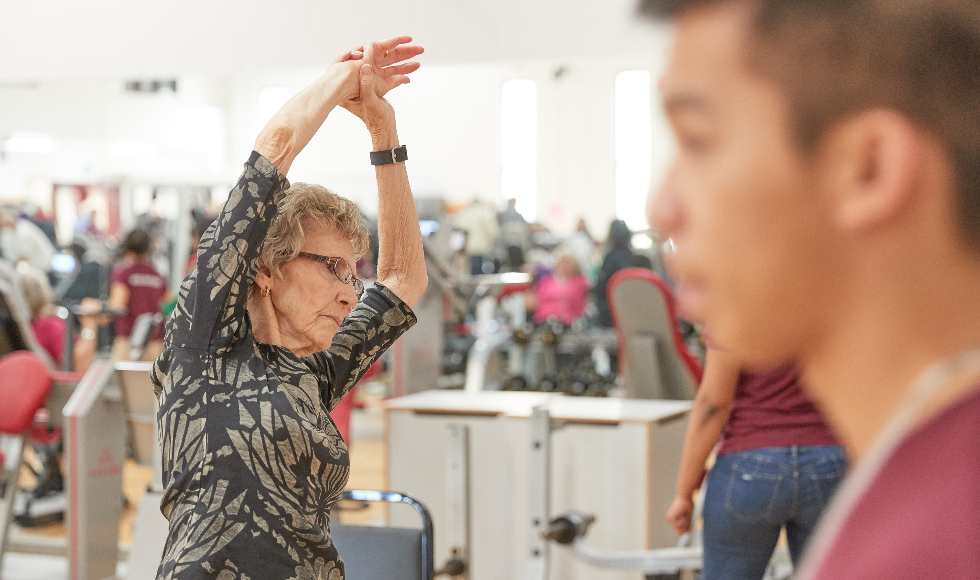Researchers at Mac explore the intersection of tech and aging at day-long showcase

A client at McMaster's Physical Activity Centre of Excellence (PACE) on Seniors' Fitness Test Day. Photo by Kevin Patrick Robbins.
For many older adults, advancements in technology can allow them to live more independently and longer in their places of choice.
The McMaster Institute for Research on Aging (MIRA) is partnering with the Faculties of Engineering, Health Sciences and Science for a full day of exploring new research and smart technologies that can change the future of aging.
This interactive research showcase will be held on Wednesday, July 17 from 9 a.m. to 2:30 p.m. at L.R. Wilson Hall, McMaster University (1280 Main Street West). The event will feature research snapshot presentations, a poster and exhibit hall, a keynote speaker, and tours of leading McMaster facilities, including LIVELab, PACE and the Westdale Smart Home.
“The challenges faced by our aging population may be met with technological solutions, but their development, evaluation and implementation will call for interdisciplinary collaboration and stakeholder engagement,” said Parminder Raina, scientific director for MIRA. “MIRA is pleased to support this event that encourages interdisciplinary research at McMaster to drive innovation in aging.”
The showcase will be an opportunity for the institution to highlight interdisciplinary research, as well as work that is connected to the wider community.
“McMaster Engineering has embraced the opportunity to collaborate with research partners across the university to use the latest technologies to offer innovative solutions to improve the quality of life of older adults,” said John Preston, associate dean, research and external relations, Faculty of Engineering. “We look forward to working with our community partners on this important initiative.”
Presentations will include research “snapshots” of ongoing projects, including installing smart sensors in houses, developing objective cognitive assessments and preventing broken bones.
“At McMaster, research into all aspects of aging is a priority that benefits from our culture of interdisciplinary collaboration,” Jonathan Bramson, vice-dean, research, Faculty of Health Sciences. “Developing technologies to ease the impact of aging and facilitate independent living requires interdisciplinary teams and will have a significant beneficial impact on society. This will be a productive day for everyone involved.”
Aging is currently one of the priorities laid out in McMaster’s Strategic Research Plan — one that crosses many faculties and disciplines.
“Researchers in our Physical Activity Centre of Excellence have earned national and international recognition for their work in improving the health and well-being of older adults. Working with colleagues from across McMaster and with industry and community partners, the Faculty of Science is committed to rethinking and reimagining optimal aging,” Maureen MacDonald, dean, Faculty of Science. “Together, we are creating innovative and practical solutions to meet the current and future needs of our aging population.”
Over the course of the day, McMaster faculty members and trainees from all Faculties will have the opportunity to network and collaborate with industry and community partners. Guests are invited to present a poster, demo or promotional materials at the poster exhibit to showcase how their research group, organization or company is exploring the future of aging with smart technologies.
For more information and to register online, click here.


